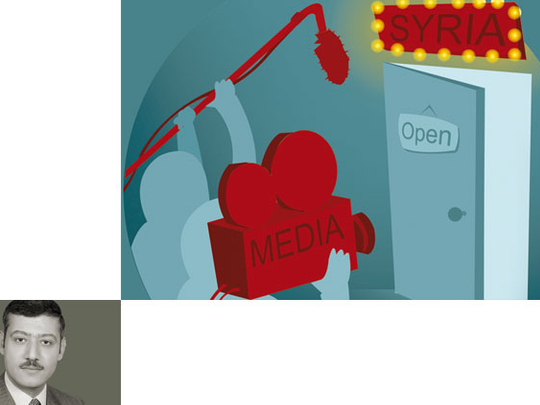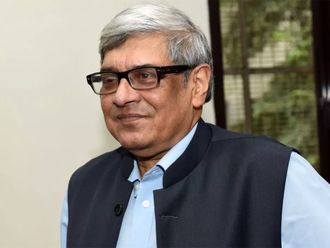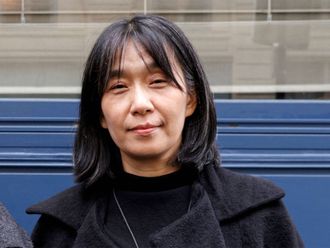
At his latest news conference on the mission of the Arab observers in Syria, the Arab League Secretary General, Nabeel Al Arabi, tried to present a balanced assessment of the Syrian regime's compliance with the Arab peace plan to resolve the crisis. "The Syrian military has pulled back from residential areas and is on the outskirts of the country's cities," Al Arabi said. However, he added, "There are still snipers on the roof of buildings. Syria must stop the gunfire immediately." He meanwhile called on the media not to publish stories until being sure of their credibility.
The Syrian media ignored almost everything in Al Arabi's assessment except his statement to the media. The Syrian regime stated that it would allow foreign media into the country, provided that they report "objectively" on the crisis. Arab League sources said that the Syrian government has informed Al Arabi that it would allow dozens of journalists and media channels to report from inside the country except for three. They are Al Jazeera, Al Arabiya, and France 24.
This attitude shows that nine months into the crisis — with thousands of peaceful protesters killed, injured, detained or tortured — the Syrian regime remains overwhelmingly preoccupied with the Arab and international media coverage of the events. It seems that the problem is all about what the media say and do rather than what really happens on the streets.
Certainly, the media has proved a key player in Arab revolutions. In particular, the role of social media in protests and revolutions has garnered considerable attention as unrest moved from one Arab country to another.
Fabricating events
Indeed, social networks have made it more difficult to sustain the regime. Similarly, satellite channels have contributed significantly to the fall of some Arab regimes, while ridding others of their legitimacy. However, the media alone does not instigate revolutions. They are mere tools that allow social groups or governments alike to present their views effectively in the vital battle for hearts and minds. For the Syrian regime, this idea seems to be hard to grasp, whereby foreign media is accused of instigating, manufacturing, and fabricating anti-government protests rather than reporting them. Even if we agree with the regime's claims and diagnosis, the performance of the state-owned media was not much different, that it turned to be unconvincing to all but a few. The state-owned media needed to challenge many highly-popular Arab satellite channels with accuracy, news and events that are equally compelling and meaningful. However, the very structure, political leanings and organisation of the state media prevented it from standing up to this challenge.
Furthermore, Syrian viewers are not neutral either. They already have causes and opinions, and they judge any network in the light of its position on these causes. Protesters are unlikely to follow or applaud a station that dubs them as thugs, salafis, and foreign agents or describes their struggle for freedom and dignity as foreign conspiracy. The language of the official media was hence rejected. Consequently, many looked for more objective and responsive coverage.
By not presenting different views and opinions, the state-owned media also contributed to dividing society. The official media has taken sides in this conflict and consequently has been viewed as part of it. Protesters and opposition who have been denied the right to express themselves through their national media turned to Al Jazeera and Al Arabiya to propagate their cause and reach out to the masses. These channels have also become major source for news, views and information. Therefore, at this point, no cosmetic or public relations strategy is likely to succeed in changing this perception of the official media. Syrian viewers are not stupid and can make the right decision as to whether their national media's information is credible or not.
Syrian media is indeed one factor in the crisis, but it should not be forgotten that unrest was first instigated by social, economic and political grievances. These should be dealt with in a wise manner. If this happens, i.e. if genuine political reforms are undertaken, Arab and international media coverage will also change accordingly.
Dr Marwan Kabalan is the Dean of the Faculty of International Relations and Diplomacy at Kalamoon University.










